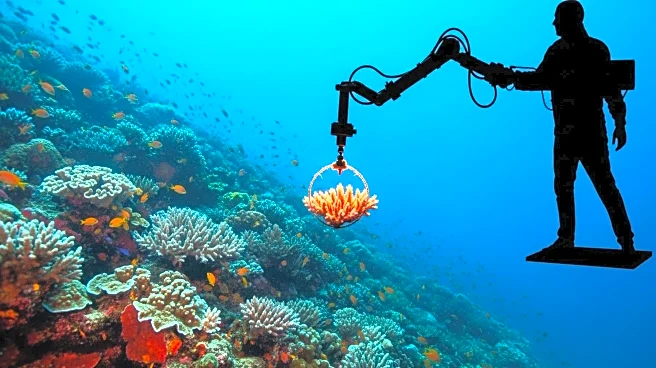What's Happening?
Scientists in the Bay Area are pioneering efforts to regenerate the world's second-largest coral reef by creating baby corals. This initiative is a response to the severe damage inflicted on coral reefs by climate change. The project aims to restore the reef's health and biodiversity, which have been compromised due to rising ocean temperatures and acidification. The scientists are employing advanced techniques to cultivate coral larvae, which are then transplanted to the affected areas of the reef. This method is expected to enhance the reef's resilience and promote ecological recovery.
Why It's Important?
Coral reefs are vital to marine ecosystems, providing habitat and food for a diverse range of species. They also protect coastlines from erosion and contribute to the livelihoods of millions of people through tourism and fishing. The degradation of coral reefs due to climate change poses a significant threat to these functions. By developing methods to regenerate coral reefs, scientists are addressing a critical environmental challenge. Successful restoration could lead to improved biodiversity, enhanced ecosystem services, and increased resilience against future climate impacts, benefiting both local communities and global biodiversity.
What's Next?
The ongoing research and development of coral regeneration techniques will likely continue to evolve, with potential expansion to other affected reefs worldwide. Collaboration with international environmental organizations and governments may be necessary to scale these efforts. Monitoring and assessment of the restored areas will be crucial to measure the success and adapt strategies as needed. Public awareness and support for coral conservation initiatives could also play a role in advancing these efforts.
Beyond the Headlines
The ethical implications of human intervention in natural ecosystems are complex. While restoring coral reefs is beneficial, it raises questions about the long-term sustainability of such interventions and the potential for unintended consequences. Additionally, this initiative highlights the broader issue of climate change and the urgent need for global action to mitigate its effects.









